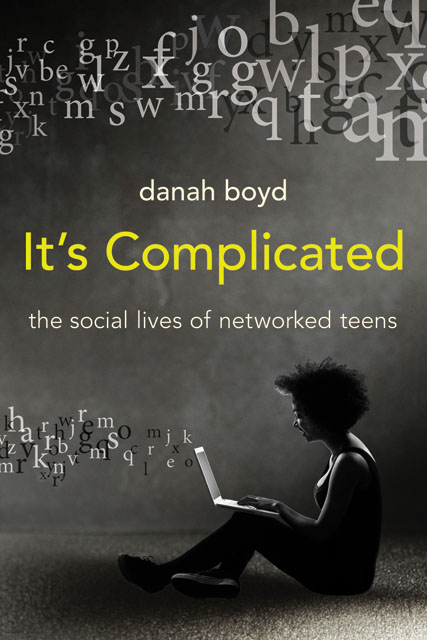
It's Complicated
The Social Lives of Networked Teens
کتاب های مرتبط
- اطلاعات
- نقد و بررسی
- دیدگاه کاربران
نقد و بررسی

December 9, 2013
Boyd, an NYU professor and principal researcher at Microsoft Research, spent eight years exploring the relationship between teens and technology, meeting with teens nationwide, from gang-ridden schools in L.A. to schools in rural Pennsylvania. The text is backed by current research, though the author warns that social media is a “moving landscape” that is constantly evolving. Boyd set out to explain the networked lives of teens to “adults who worry” about the role of technology in kids’ lives, but, as one teen posts online of her romantic status, “It’s complicated.” The author discovers this to be true of the role of technology in teenagers’ lives as well. As she delves into this complex subject, Boyd finds that adults have often used technology as a “punching bag,” blaming and fear-mongering in ways that aren’t helpful to kids, families, or communities. While many adults complain teens are addicted to technology, she argues that kids are actually addicted to their friends and social connections. Today’s teens, Boyd asserts, have less freedom than teens of yore; with structured environments and schedules, less free time, less geographic freedom, and not as many places to hang out face-to-face. As a result, they create their own online meeting places where they can gather and interact. Students, parents, and educators will find this a comprehensive study of how technology impacts teens’ lives and how adults can help balance rather than vilify its inevitable use. Agent: Kristine Dahl, ICM.

January 1, 2014
An analysis of the role social media plays in the lives of teens. "Social media has evolved from being an esoteric jumble of technologies to a set of sites and services that are at the heart of contemporary culture," writes Microsoft principal researcher Boyd (Media, Culture, and Communications/New York Univ.). "Teens turn to a plethora of popular services to socialize, gossip, share information, and hang out." They use them to enhance and expand their social interactions with their peers. Cellphones, texting and online sites like Facebook allow teens to share more than the minutiae of their daily lives; they are relatively safe and vital places where they can express their opinions and receive almost instant feedback from a vast network of friends. With street corners, city parks and even shopping malls becoming off limits to teens as places to congregate, the Internet gives adolescents access to their friends, who might live across town or even across the country. Through hundreds of interviews with teens, parents, teachers, librarians and others who work with the young, Boyd's extensive research illuminates the oft-misunderstood world of teens today, where social media is an extension of life, not a place to hide from parents or other authority figures. She examines the unwritten etiquette rules of social networking sites, the safety concerns of parents and teens who worry about cyberbullying and cyberstalking, the fear of an online presence leading to sexual predation and the racial segregation filtering through the Internet. Thorough information interwoven with common-sense advice from teens and the author enable readers, particularly parents, to relax a bit regarding this new media age. Boyd also provides a list of demographic information about the teens she interviewed, including age, ethnicity, home state and which sites they use. Comprehensive new research that illuminates why and how social media is important to teens.
COPYRIGHT(2014) Kirkus Reviews, ALL RIGHTS RESERVED.

Starred review from February 15, 2014
This groundbreaking survey of the online social habits and realities of American teens, based on extensive fieldwork, also serves as an important corrective to numerous persistent, widely held notions about young people, public life, and the Internet. Boyd (principal researcher, Microsoft Research) offers provocative, cogent, and compassionate assessments of teen participation in what she calls "networked publics." She illuminates the conflict between teens' desire to connect to peers and adult-created impediments to this socialization and roundly critiques both the idealism and the anxiety informing adult reactions to teen online behaviors. Among other topics in her packed but efficient and accessible book, Boyd discusses bullying, media literacy, and social inequality; debunks the pervasiveness of online predation; addresses problematic assumptions behind the term digital native; defends Wikipedia as a great educational tool that makes transparent the evolution of knowledge; and astutely points out that the technology may be new, but teens, as always, simply want to socialize, be known, spend time with friends, and participate in public life. VERDICT Exciting, challenging, and liberating; this title is essential reading for adults with any interest in or control over teens.--Janet Ingraham Dwyer, State Lib. of Ohio, Columbus
Copyright 2014 Library Journal, LLC Used with permission.

























دیدگاه کاربران